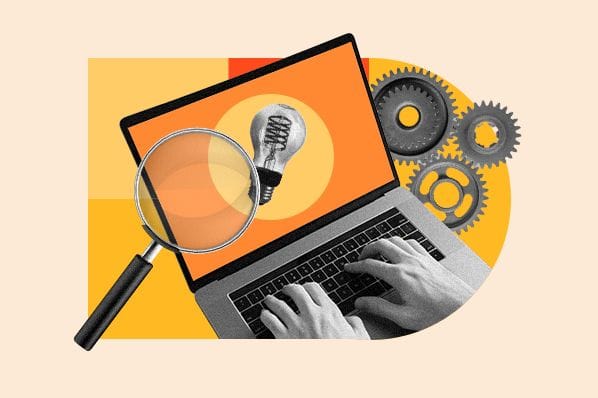5W1H Analysis
Who
Key players include BT Group, Google/Alphabet, PwC, EY, Deloitte, Globant, and IBM, along with major tech names like Nvidia, Microsoft, Meta, Apple, and Amazon.
What
The headlines span: AI-driven job reduction at BT and Google, PwC and EY’s consulting restructurings, Deloitte’s well-being initiative, Globant’s billing transformation, and Big Tech’s ramp-up of AI advertising tools.
When
News surfaced between early June and mid-June 2025, including ongoing structural and workforce planning.
Where
Updates originate from the UK, US, and global markets, highlighting multinational tech hubs and consulting centers.
Why
Driven by mounting AI and infrastructure investment pressures, firms are reshaping operations—ranging from staff restructuring to modernizing advisory and billing models.
How
Organizations are deploying AI-powered automation, launching new business units, rolling out well-being benefits, and rolling out subscription-based AI services in place of traditional billing.
News Summary
- BT Group CEO warns that AI may lead to further job reductions beyond previous 55,000‑position cuts, as AI tools like EE’s “Aimee” virtual assistant automate roles (thetimes.co.uk, businessinsider.com, businessinsider.com).
- Google/Alphabet rolled out expanded voluntary buyouts amid broader tech-sector layoffs, driven by heavy AI and infrastructure investment needs (~75,000 job cuts so far) (investopedia.com).
- PwC (U.S.) is revamping its advisory arm—doubling from four to eight platforms and integrating managed services—to deliver industry-specific, tech-savvy consulting backed by AI (wsj.com).
- PwC UK leadership marks a “golden age” for the Big Four, fueled by AI investments and internal restructuring led by Marco Amitrano (thetimes.co.uk).
- Deloitte US enhanced its well-being allowance by approving personal wellness and leisure stipends (e.g., spa, gaming, ergonomic gear) to support employee mental health (timesofindia.indiatimes.com).
- Globant is moving from traditional billing to “AI Pods”—a token-based subscription model offering ongoing AI-powered services, reflecting shifting consulting economics (businessinsider.com).
- Big Tech firms (e.g., Google, Microsoft, Amazon) are aggressively pushing AI-powered advertising tools—posing threats to traditional ad agencies (wsj.com).
6-Month Context Analysis
- AI automation is leading to tangible job cuts and workforce reshaping, not only in tech but also across telecom and consulting sectors.
- Consulting firms pivot: industry-specific advisory, AI integration, and wellness/well-being investments reflect evolving client and employee needs.
- Billing models are changing: Globant’s AI Pods echo a broader trend toward recurring, usage-based consulting models.
- Big Tech’s ad push underscores expanding AI monetization strategies beyond core services.
Future Trend Analysis
Emerging Trends
- AI-led staff rationalization will continue in tech and telecom.
- Consulting will become more industry and outcome-focused, backed by AI-enabled capabilities.
- Subscription/usage models will displace billable-hour consulting.
- AI advertising dominance will push agencies to evolve service offerings.
12‑Month Outlook
- Workforce reviews and AI skill redeployment will reshape talent strategies.
- Consulting arms will launch or expand AI and tech-driven service portfolios.
- AI Pods-style packages may become standard across consultancies.
- Digital marketing agencies will need to pivot or partner around AI-driven tools.
Key Indicators to Monitor
- Layoff and buyout announcements in tech/telecom.
- Growth of AI advisory units in consulting firms.
- Adoption of token/subscription models beyond Globant.
- Market share shifts in ad spend toward tech platforms.
Scenario Analysis
Best Case Scenario
Consultancies and tech firms align workforce transformation with reskilling, while AI product innovation leads to scalable and profitable engagement models.
Most Likely Scenario
Incremental adoption: consulting firms restructure and launch AI services; tech layoffs continue but capped; ad revenue grows as agencies adapt.
Worst Case Scenario
Over-dependence on AI leads to talent erosion, service gaps in consulting, and agency failure—while ad tools underperform, shaking trust in AI investments.
Strategic Implications
- HR leaders should design reskilling programs and transparent workforce transition strategies.
- Consulting executives must accelerate AI capability development and consider outcome-based billing models.
- Tech advertisers and agencies should rapidly adapt to AI-tool proliferation, possibly partnering with or competing against tech giants.
- Industry watchers should monitor consulting innovation, wellbeing benefit evolution, and employ adoption of subscription AI advisory.
Key Takeaways
- BT and Google signal continued AI-driven workforce downsizing.
- PwC and EY restructure consulting with AI and industry focus.
- Deloitte’s well-being investment acknowledges employee welfare in high-change environments.
- Globant’s AI Pods reflect trend toward subscription-based consulting.
- Big Tech’s AI ad tools are disrupting traditional marketing models.
Sources:
- BT warns of job cuts businessinsider.com
- Google buyouts announced (investopedia.com)
- PwC US advisory overhaul (wsj.com)
- PwC UK “golden age” statement (thetimes.co.uk)
- Deloitte wellbeing update
- Globant AI Pods model (businessinsider.com)
- AI tools threat to ad agencies (wsj.com)


















Discussion